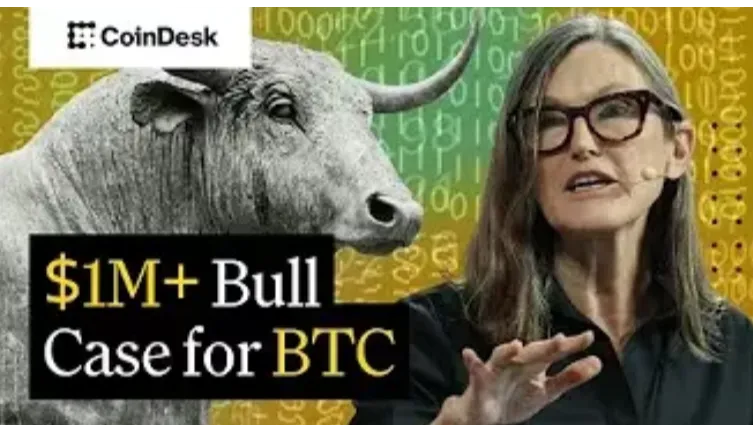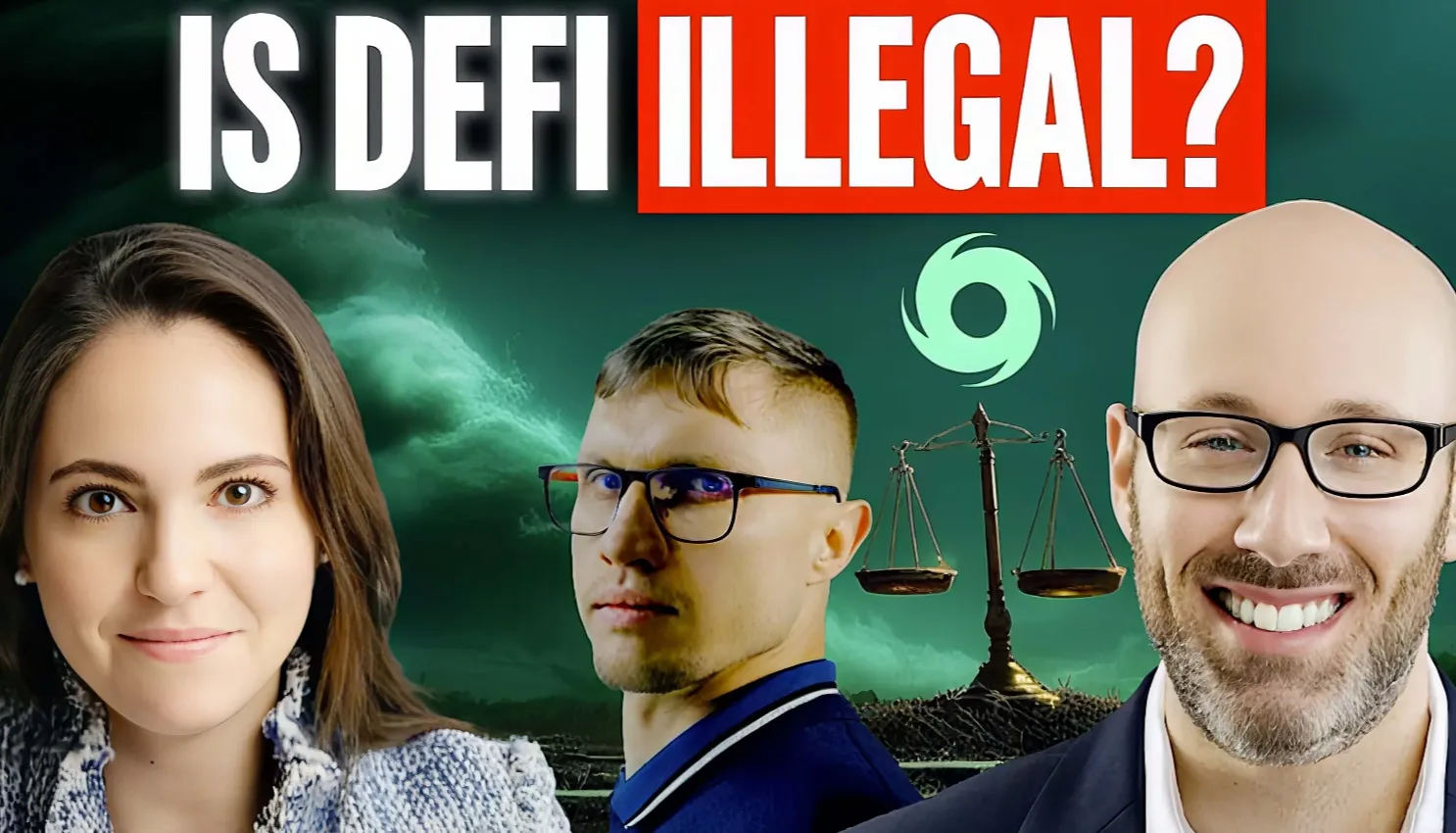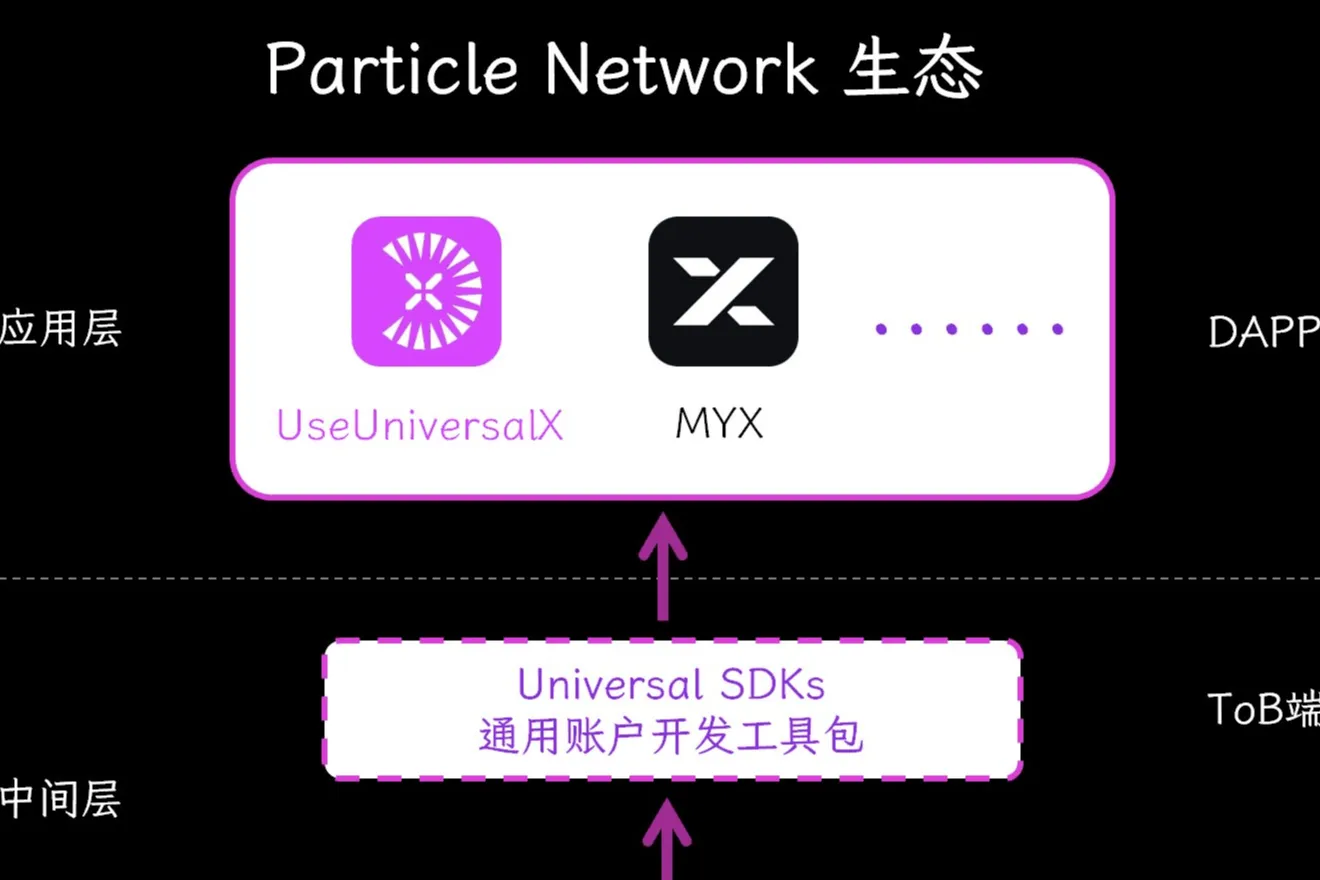_Original Title: _The Trial That Could Decide The Future of Crypto
Host: David, Bankless
Guests: Jake Chervinsky, Amanda Tuminelli
Compiled & Translated by: Janna, ChainCatcher
Editor's Note:
Roman Storm is a co-founder of Tornado Cash, hailing from Washington, USA. Roman Storm and Roman Semenov are charged with conspiracy to commit money laundering, violating sanctions, and operating an unlicensed money transmission business. In August 2023, Roman Storm was arrested in Washington State and subsequently released on bail.
Roman Storm is facing three charges from the U.S. Department of Justice, including money laundering, violating sanctions, and operating an unlicensed money transmission business under Section 1960 of Title 18 of the U.S. Code. The trial outcome at the end of 2024 showed that Storm was convicted on the Section 1960 charge, but the jury was unable to reach a consensus on the more serious charges of money laundering and sanctions evasion.
This article is based on an interview from the Bankless podcast featuring seasoned crypto attorneys Jake Chervinsky and Amanda Tuminelli, who provided an in-depth analysis of the ruling. This ruling is not just about a single case but is a global issue concerning the maintenance of the openness and sustainable development of blockchain technology.
The following is the dialogue, compiled and organized by ChainCatcher.
TL & DR:
For Storm personally, this is a significant victory, as the jury did not convict him on the more serious charges of money laundering and sanctions evasion; however, for the industry, seeing developers convicted based on money transmission theory is devastating.
The jury's inability to reach a consensus reflects the government's failure to prove the core theory that Storm intentionally assisted in money laundering.
The Section 1960 money transmission charge is more technical, with few litigation cases; the jury may have viewed this as a compromise verdict, acknowledging misconduct but opting for the lesser charge.
There are strong grounds for appeal, including the judge's error in defining money transmission and weak location evidence; the government's likelihood of re-examining the first two charges is low due to a lack of key evidence.
The crypto industry needs to unify in pushing Congress to amend Section 1960 to clarify that those controlling funds are money transmitters; this would permanently protect developers from similar prosecutions.
The Trump administration has delivered several commitments, such as the passage of the Genius Act, but more focus is needed on market structure legislation; educating Congress to understand that DeFi is not a criminal tool is crucial.
If the Democrats return to power, the confusion between illegal finance and cybersecurity may persist; building mainstream products is the best defense to normalize crypto.
The greatest value of blockchains like Ethereum lies in their openness, allowing for diverse innovation; privacy should be seamlessly integrated into all wallets, not as an exclusive feature.
Centralized data collection is vulnerable; if hacked, it could jeopardize national security; crypto tools protect freedom and autonomy without relying on any entity.
Initial Impressions of the Ruling
David: We are currently in a follow-up discussion regarding the ruling of Roman Storm. Initially, we thought this was the end of the matter, but the reality shows we are still in the process, as Roman clearly stated he would appeal upon leaving the courtroom. Jake, please share your initial reaction to this ruling and the current progress of the Roman Storm case.
Jake: My first reaction is shock that Roman was convicted on any charges. In the U.S., any DeFi developer who merely builds a non-custodial protocol, which is then exploited by malicious users and the developer cannot control or prevent, should not face prosecution or imprisonment. This is absurd to me. Therefore, I feel regret about the current situation and the future of DeFi. This outcome is more favorable for Roman personally. He faced three charges: money laundering, violating sanctions, and operating an unlicensed money transmission business under Section 1960. The jury was unable to reach a consensus on the first two charges, which are more serious from a sentencing perspective. The government failed to meet its burden of proof, which is a significant victory. As a result, Roman's maximum statutory sentence is 5 years, rather than potentially decades. During the sentencing phase, the defense can make strong arguments for a sentence far below 5 years, possibly even just probation. For the entire industry, seeing developers convicted based on the government-driven money transmission theory is a devastating outcome. This theory has been proven wrong and poses an existential threat to DeFi.
David: Amanda, please share your thoughts and key points.
Amanda: Jake has covered the main points. I want to add that, as a former criminal defense attorney, I believe the jury's inability to reach a consensus, while not a complete victory, is indeed a success. The jury did not convict Roman on money laundering and sanctions evasion, which are extremely serious charges and reflect the government's core theory—that is, proving Roman intentionally assisted in money laundering. However, the government failed to achieve this goal, which is a success for Roman and his team's excellent defense. While Section 1960 has been our long-term focus, it is more technical and legally nuanced. There are few litigation cases for this charge, especially those that go to trial. The jury may have viewed this as a compromise verdict, acknowledging misconduct but opting for the less serious charge. I want to emphasize that this is a significant victory for Roman.
Outcome Assessment: Victory or Success?
David: While this case has not established a hard precedent, it can be seen as a "soft precedent," meaning developers will not go to jail for writing code. It is reassuring that American software developers can go home to their families instead of being imprisoned. Please respond to my viewpoint, or perhaps I am being overly optimistic.
Jake: I support maintaining a positive attitude, but it is hard to view this as a significant victory because the conviction is based on the act of writing code, and Roman still faces imprisonment. Amanda correctly distinguishes between victory and success; the former implies some finality, and this case is not over. We are waiting to see if the government will re-examine the first two charges. If the government is confident there is sufficient evidence showing Roman colluded with malicious behavior, we should have seen that in the initial trial. However, due to a lack of key evidence, I believe they are reluctant to re-examine. Nevertheless, this decision is partially influenced by political factors, and the jury's outcome is unpredictable. The government may choose to re-examine all three charges. Therefore, the current jury's failure to find that the government met its burden of proof on the first two charges is a success, but the issue is far from resolved.
Analysis of Re-examination Possibility
David: If the government re-examines the first two charges, is it due to a lack of key evidence? If there is no new content, is the re-examination merely an attempt to retry for a better outcome?
Amanda: Partially correct, but they can introduce new witnesses. In the initial trial, the government made a mistake by calling a witness who claimed their funds flowed into Tornado Cash, but this claim was debunked. They may avoid similar mistakes and choose better experts for tracking analysis. If they choose to re-examine, they can restart comprehensively. Personally, I think they will not re-examine and should feel apprehensive.
David: Is the outcome already determined?
Amanda: Not yet determined. Roman can file Rule 29 and Rule 33 motions. The former seeks a judgment of acquittal, while the latter requests a new trial. Even before an appeal, there is room for these motions regarding the Section 1960 conviction. The judge indicated that the stability of the ruling is in doubt, whether in her court or in the appellate court. She views Section 1960 as the most interesting issue, which suggests she may acknowledge an error. The government will not decide to re-examine until the motion results are known, as the outcome will affect their choice.
Jake: In typical cases, the government needs days to weeks to decide. This case is not typical, but the speedy trial law requires re-examination within 70 days, although it can be delayed. We will not wait long.
Section 1960 Money Transmission Controversy
David: Let’s focus on the Section 1960 issue. This topic is at the core of our struggle in the crypto industry, ensuring that software developers, smart contract developers, and node operators do not need to register as money transmitters. The essence of blockchain is to serve as an asset ledger; if any interaction is viewed as money transmission, the entire industry will be criminalized. This is incompatible with the spirit of the industry. Roman was merely uploading code to Ethereum and was charged; this outcome is devastating.
Jake: For those who have not been closely following, this is a wake-up call. Section 1960 requires money transmitters to register with FinCEN and comply with anti-money laundering regulations, which necessitates controlling customer funds. We wrote a 40-page analysis to support this point. FinCEN explicitly guided DeFi in 2019, and the Department of Justice's 2020 framework also recognized this. Roman followed this guidance. However, the Biden administration sanctioned Tornado Cash and prosecuted developers for political motives rather than legal changes. The Department of Justice reversed the definition, claiming that "facilitating transactions" is sufficient without the need to control. This theory is placed in the motion to dismiss, claiming Roman should be responsible whether he knew or was ignorant. This injustice threatens all non-custodial protocol developers. The jury was bound by the judge's instructions, who accepted the government's theory, making conviction easy to appeal or overturn post-trial motions.
Amanda: Jake has elaborated. The judge did not include the requirement of custody or control in the jury instructions, so the jury did not consider this point. This is suitable for appeal, challenging the instructions and the government's argument.
Appeal Prospects and Optimistic Perspective
David: You both view the outcome as negative for DeFi but emphasize that the grounds for appeal are strong. Roman has stated he will appeal and is in good spirits. This makes me feel optimistic, even though I am not a lawyer. Please temper my viewpoint and point out my naivety. While we are at a disadvantage, the prospects are promising.
Jake: Disclaimer: I am not the audience's lawyer, and this is not legal advice. I agree that the grounds for appeal are strong. First, the judge erred on the core issue: whether non-custodial protocols constitute money transmission. If the Second Circuit clarifies the definition, it will benefit Roman and the entire industry, although it is not as comprehensive as legislation. That is not the only reason.
Amanda: Another key point is the location. The government must prosecute in a geographically relevant area related to the crime; the evidence in this case is weak, with only Roman texting someone in Manhattan. The defense challenged this multiple times, and this point is well-preserved and easiest to overturn the ruling. Most importantly is Roman's feeling. If he feels supported and motivated, we will do everything we can to help him challenge.
David: Roman needs community support to fight against the Department of Justice. The precedent in this case is weak, and an appeal can go to the Second Circuit to strengthen the precedent. Please explain how precedents are established and their strength.
Amanda: Precedents are divided into binding and persuasive. The Supreme Court provides the most binding precedents. District courts, like in this case, offer the lowest persuasive precedents, serving only as references for other courts in the Southern District of New York. The judge did not issue a written decision, making it harder to cite. If appealed to the Second Circuit and successful, that definition would become a binding precedent for lower courts. With each level, the strength of the precedent increases.
Future Procedures and Ideal Outcomes
David: Assuming Roman appeals the Section 1960 conviction, what are the next steps? If successful, what would the outcome be? Please balance the discussion.
Amanda: The judge sets deadlines for Rule 29 (judgment of acquittal) and Rule 33 (new trial) motions. After submission, the government opposes, Roman replies, and the judge decides. If the conviction stands, then sentencing occurs, followed by an appeal to the Second Circuit. I hope the motions succeed and overturn the conviction. Roman claims a 99.9% success rate for the appeal; I see it as above 50%, more likely to succeed.
Jake: Ideally: the government does not re-examine money laundering and sanctions; dismisses or the president pardons the Section 1960 charges; Congress amends Section 1960 to clarify the need to control funds. This would protect the industry from similar future issues. Anything is possible if the industry unites. The president wants to make the U.S. the crypto capital; we must push for that.
David: This case returns control to the industry. We have political influence to change the outcome. Amanda, do you agree?
Amanda: Indeed. We can call senators to request that the market structure bill includes developer protections. Proposals like the DeFi Education Fund suggest fixes, including amending Section 1960. We need to unify to ensure the bill protects developers building neutral tools, not illegal finance.
Current Status of Regulatory Bills
David: What is the status of the Clarity Act and RFIA?
Amanda: Clarity is the market structure version passed by the House, now in the Senate. RFIA is a draft under discussion in the Senate and is still being refined. Both include blockchain regulatory certainty bills that protect developers. However, the Senate version lacks the protections for decentralized finance activities found in Clarity. We need to push for its inclusion. The Senate has released a simplified version, aiming to gather feedback. Based on different foundations, we emphasize the need for protective support.
David: If Congress passes a protective bill, this runs parallel to Roman's appeal. Even with legislation, Roman still needs to appeal to overturn the conviction. Please clarify.
Jake: Congress cannot directly overturn a conviction, but if clarified as retroactive, the appellate court could view the original conviction as flawed. It’s not the most direct path. The Department of Justice could dismiss the conviction or issue guidance defining money transmission as requiring control of funds. This distinction is crucial given the Biden administration's actions.
Amanda: It is the Biden administration that prosecuted. If the Trump administration wanted to draw a line, it could veto. The momentum of this case stems from the previous government, but it can now shift to support the U.S. becoming a crypto hub.
David: We have three paths: congressional legislation, Roman's appeal, and the Department of Justice stepping back. Legislation and a successful appeal would create a dual-layer precedent, the optimal outcome.
Assessment of the Trump Administration
David: The Trump administration has led the crypto space for 8 months; how do you assess its fulfillment of commitments to crypto?
Amanda: The government has delivered on many commitments, such as executive orders, presidential task force reports, stablecoins, and the passage of the Genius Act—this is the first crypto law. The focus has been sufficient, but more progress is needed on market structure and protections. Educating congressional members to understand that DeFi is not a criminal tool is crucial.
Jake: I agree with this perspective. The current atmosphere is far better than during Gensler's era a year ago. Institutional progress is significant, such as the SEC's Project Crypto. However, the White House has been slow to focus on areas like money transmission. We need legislative protections to prevent future government influence.
Future Political Uncertainty
David: If the Democrats return in 2028 and hostility remains, what scenarios might arise?
Amanda: Not just in 2028; the composition of Congress may change in next year's midterm elections. We educate across party lines, but the confusion between illegal finance and cybersecurity persists. The focus is overly on a small part of DeFi as illegal finance. We strive to differentiate, but challenges remain.
Jake: If the Democrats regain control of the House, it will be difficult to complete market structure legislation, leaving no legislative protections for the next government. The outcome depends on the president's views. If the industry builds mainstream products, it will be the best defense. If it is limited to Bitcoin, stablecoins, and meme coins, the situation is concerning.
Call to Action for the Industry
David: If the stakes of the midterm elections are significant, what actions can we take?
Amanda: We can vote and support pro-crypto candidates. We can call representatives to emphasize economic contributions. We can seek meetings or contact organizations like the DeFi Education Fund and the Blockchain Association. Participation is crucial during this key period.
Jake: We can support the DeFi Education Fund and fund Roman's defense. We should not forget Alexey Pertsev, who is appealing in the Netherlands; he also needs support.
Click to learn about ChainCatcher's job openings
Recommended Reading:
The Past, Present, and Future of Ethereum: Vitalik Explains How Ethereum Became the World Ledger
Tornado Cash Developer Sentenced: Is "Code is Speech" Dead?
免责声明:本文章仅代表作者个人观点,不代表本平台的立场和观点。本文章仅供信息分享,不构成对任何人的任何投资建议。用户与作者之间的任何争议,与本平台无关。如网页中刊载的文章或图片涉及侵权,请提供相关的权利证明和身份证明发送邮件到support@aicoin.com,本平台相关工作人员将会进行核查。



